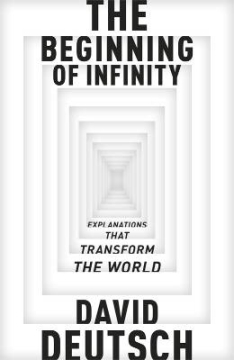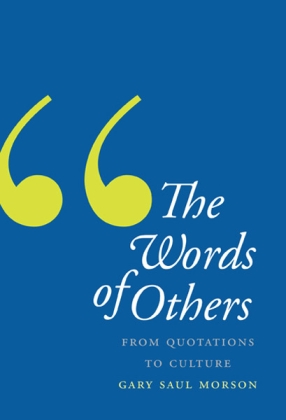- HOME
- INTRO TO THE FORUM
- USE AND MISUSE
- BADLY WRITTEN, BADLY SPOKEN
- GETTING
TO KNOW ENGLISH - PREPARING FOR ENGLISH PROFICIENCY TESTS
- GOING DEEPER INTO ENGLISH
- YOU ASKED ME THIS QUESTION
- EDUCATION AND TEACHING FORUM
- ADVICE AND DISSENT
- MY MEDIA ENGLISH WATCH
- STUDENTS' SOUNDING BOARD
- LANGUAGE HUMOR AT ITS FINEST
- THE LOUNGE
- NOTABLE WORKS BY OUR VERY OWN
- ESSAYS BY JOSE CARILLO
- Long Noun Forms Make Sentences Exasperatingly Difficult To Grasp
- Good Conversationalists Phrase Their Tag Questions With Finesse
- The Pronoun “None” Can Mean Either “Not One” Or “Not Any”
- A Rather Curious State Of Affairs In The Grammar Of “Do”-Questions
- Why I Consistently Use The Serial Comma
- Misuse Of “Lie” And “Lay” Punctures Many Writers’ Command Of English
- ABOUT JOSE CARILLO
- READINGS ABOUT LANGUAGE
- TIME OUT FROM ENGLISH GRAMMAR
- NEWS AND COMMENTARY
- BOOKSHOP
- ARCHIVES
Click here to recommend us!
READINGS IN LANGUAGE
This section features links to interesting, instructive, or thought-provoking readings about the English language and related disciplines. The selections could be anywhere from light and humorous to serious and scholarly, and they range widely from the reading, writing, listening, and speaking disciplines to the teaching and learning of English.
Human development will extend infinitely, says physicist in book
A meme, just in case you haven’t bothered yet to find out what it means exactly, is defined as an idea, behavior, style, or usage that spreads from person to person within a culture. Memes come in the form of such cultural artifacts as languages, religions, values, ideas, and traditions, and in neo-Darwinian theories of cultural evolution, memes are looked upon in much the same way that Darwinian theories of biological evolution look upon genes.

In his book The Beginning of Infinity: Explanations That Transform the World (Viking, 487 pages), computational physicist and science philosopher David Deutsch makes a remarkably lucid and insightful discussion of the mechanisms of mutation, transmission, and selection of memes and how they differ from those of genes. He identifies and analyzes two meme-replication strategies—one “rational” and the other “anti-rational.” Rational memes, Deutsch explains, are good ideas that will survive rigorous scientific scrutiny, the kind that will somehow make life easier or safer or more rewarding because they tell us something useful about how the world actually works. In contrast, irrational memes are a more interesting and diabolical kind that reproduce themselves by disabling the capacities of their hosts to evaluate or invent new ideas.
Deutsch’s explores in The Beginning of Infinity not only the idea of meme and meme replication but practically everything else imaginable—art, science, philosophy, history, politics, evil, death, the future, infinity, bugs, and body parts. His overriding concept is universality and man’s having become a universal problem solver in the course of his evolution. Says Columbia University philosophy professor David Albert in a review of the book in the August 12, 2011 issue of The New York Times: “(Deutsch) writes as if what he is giving us amounts to a tight, grand, cumulative system of ideas — something of almost mathematical rigor — but the reader will do much better to approach this book with the assurance that nothing like that actually turns out to be the case. I like to think of it as more akin to great, wide, learned, meandering conversation…never dull, often startling and fantastic and beautiful, often at odds with itself, sometimes distasteful, sometimes unintentionally hilarious, sometimes (even, maybe, secondarily) true.”
Read excerpts from David Deutsch’s The Beginning of Infinity
ABOUT THE AUTHOR:
David Deutsch is an Israeli-British physicist at the University of Oxford. He is a non-stipendiary visiting professor in the Department of Atomic and Laser Physics at the Centre for Quantum Computation (CQC) in the Clarendon Laboratory of the University of Oxford. He pioneered the field of quantum computation by being the first person to formulate a description for a quantum Turing machine, as well as specifying an algorithm designed to run on a quantum computer. His first book, The Fabric of Reality, explains to the general reader his views of quantum mechanics and its implications for understanding reality.
ANOTHER INTERESTING READING:
In “Sounds Familiar,” a review of Gary Saul Morson’s The Words of Others: From Quotations to Culture (Yale University Press, 352 pages), John Sutherland says that academics like himself are skilled users of turnitin.com, the trade’s leading “plagiarism detector,” to check students’ essays or dissertations for plagiarism. But he complains that the problem is that Turnitin turns in a lot of zombie quotes—not exactly plagiarized material but congealed lumps of ideas from various authors—indicating that most language is pre-owned. He says that Gary Morson’s The Words of Others lets us know that those previous owners are often worth knowing about, and is full of surprises on the “baggage” carried by recorded phraseology.

Read John Sutherland’s “Sounds Familiar” in the Literary Review.co.uk website now!
Click to read comments or post a comment
View the complete list of postings in this section
(requires registration to post)







